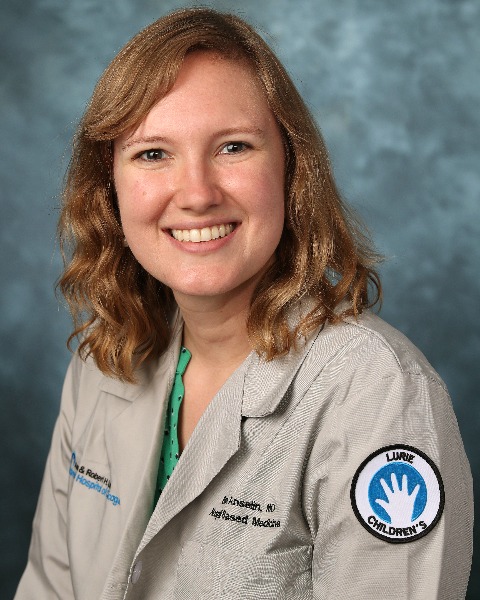Advocacy Project
Program: Council on Environmental Health and Climate Change
O4350: A Community-Engaged, Multi-Level Advocacy Initiative to Advance Healthy Housing
Monday, September 29, 2025
11:20 AM - 11:26 AM MDT
Location: Colorado Convention Center, Meeting Room 204
Background: Children are uniquely vulnerable to toxic environmental exposures in the home such as lead, mold, and pests. Unhealthy housing conditions disproportionately impact Black and Latinx children as the result of systemic racism. To advance health equity, pediatricians can build community partnerships to advocate for organizational, community, and policy change to address environmental hazards in the home.
Project Description: Since 2022, I have partnered with two Chicago-based community organizations focused on poor housing conditions - the Metropolitan Tenants Organization and Northwest Center. Together we engage in advocacy across multiple levels of the socioecological model to promote healthy housing for children. At the community level, we jointly applied for funding to develop a program to provide home environmental assessments to families of children with asthma. Both community partners used this pilot to secure additional funding from the CDC and EPA to continue and expand this work. We also hosted a community summit to increase awareness about the link between health and housing. At the organizational level, we developed a training for physicians to improve skills in addressing patients’ housing concerns. We have collaboratively delivered this training to three groups of physicians at two different academic institutions in Chicago. We successfully advocated to my hospital’s leadership to incorporate housing hazards into our EMR-based social influencers of health screen, and are developing new community referral pathways for patients who screen positive. At the policy level, we are working with a coalition of housing organizations to develop a local ordinance to protect renters from home health hazards through proactive inspections. We secured a formal endorsement of the ordinance from my hospital and have engaged 30 faculty and residents in writing to their local representatives to support the policy.
Discussion: Community organizations are experts in the unique housing challenges experienced by community members and the solutions that have the greatest impact. In order to be effective advocates, pediatricians should develop skills in bi-directional community engagement and build trusting relationships with local community partners. The AAMC’s Principles of Trustworthiness and National Academy of Medicine’s Conceptual Model of Community Engagement provide frameworks for community engagement that emphasize sustained relationships, co-creation of priorities, and mutual benefit. Our partnership has been strengthened by engaging in multiple related initiatives over several years and responding quickly when the community organizations identify new priorities. Challenges include frequent staff turnover, differences in capacity between partners, and hierarchies within organizations. Through this partnership, we have developed a multi-pronged advocacy strategy that aims to increase the responsiveness of hospitals to housing concerns, expand community resources to address unhealthy housing, and remove systemic barriers with legislative change.
Conclusion: Pediatricians can advocate for environmental justice by partnering with community organizations and developing mutually beneficial initiatives at the hospital, community, and policy level.
Project Description: Since 2022, I have partnered with two Chicago-based community organizations focused on poor housing conditions - the Metropolitan Tenants Organization and Northwest Center. Together we engage in advocacy across multiple levels of the socioecological model to promote healthy housing for children. At the community level, we jointly applied for funding to develop a program to provide home environmental assessments to families of children with asthma. Both community partners used this pilot to secure additional funding from the CDC and EPA to continue and expand this work. We also hosted a community summit to increase awareness about the link between health and housing. At the organizational level, we developed a training for physicians to improve skills in addressing patients’ housing concerns. We have collaboratively delivered this training to three groups of physicians at two different academic institutions in Chicago. We successfully advocated to my hospital’s leadership to incorporate housing hazards into our EMR-based social influencers of health screen, and are developing new community referral pathways for patients who screen positive. At the policy level, we are working with a coalition of housing organizations to develop a local ordinance to protect renters from home health hazards through proactive inspections. We secured a formal endorsement of the ordinance from my hospital and have engaged 30 faculty and residents in writing to their local representatives to support the policy.
Discussion: Community organizations are experts in the unique housing challenges experienced by community members and the solutions that have the greatest impact. In order to be effective advocates, pediatricians should develop skills in bi-directional community engagement and build trusting relationships with local community partners. The AAMC’s Principles of Trustworthiness and National Academy of Medicine’s Conceptual Model of Community Engagement provide frameworks for community engagement that emphasize sustained relationships, co-creation of priorities, and mutual benefit. Our partnership has been strengthened by engaging in multiple related initiatives over several years and responding quickly when the community organizations identify new priorities. Challenges include frequent staff turnover, differences in capacity between partners, and hierarchies within organizations. Through this partnership, we have developed a multi-pronged advocacy strategy that aims to increase the responsiveness of hospitals to housing concerns, expand community resources to address unhealthy housing, and remove systemic barriers with legislative change.
Conclusion: Pediatricians can advocate for environmental justice by partnering with community organizations and developing mutually beneficial initiatives at the hospital, community, and policy level.

Emma Anselin, MD, MPH (she/her/hers)
Attending Physician in Hospital-Based Medicine
Lurie Children's Hospital
Feinberg School of Medicine
Chicago, Illinois

